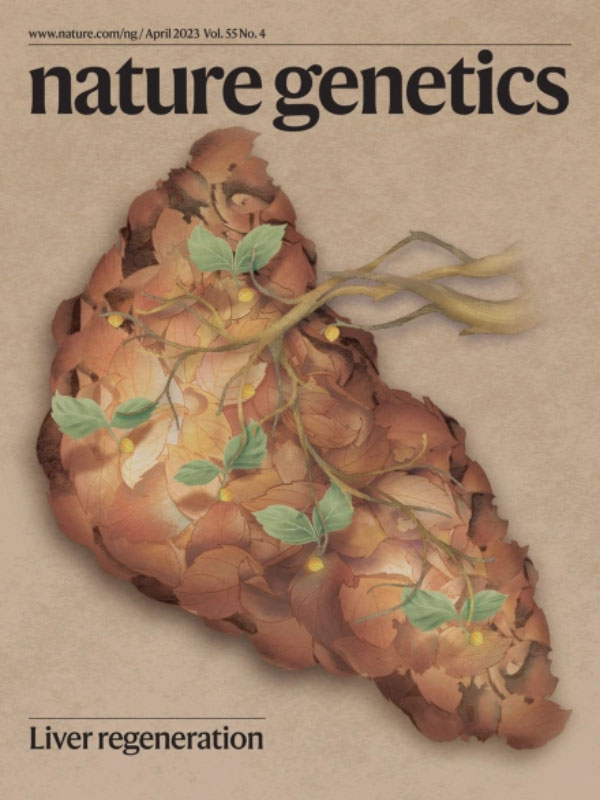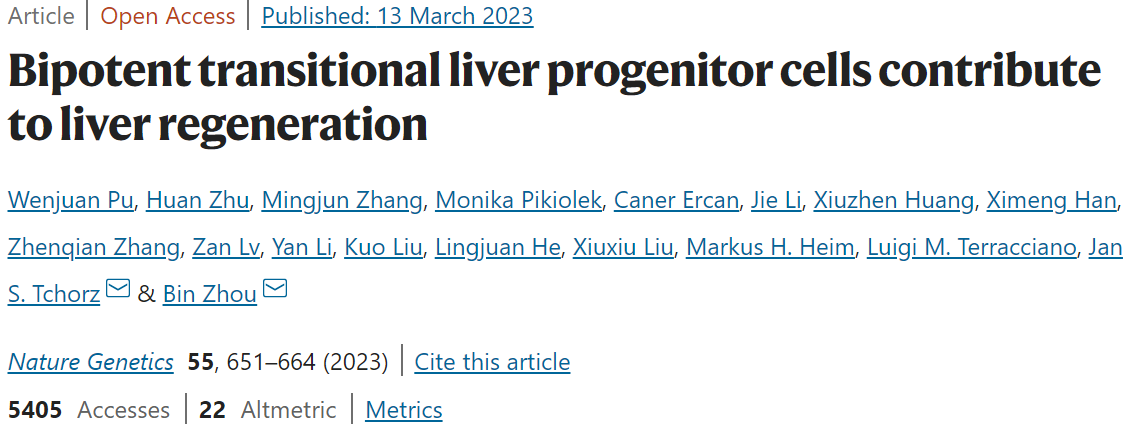Nature Genetics中稿封面
Apr 17,2023
The image designed by Sphere Studio is selected as the Cover of Nature Genetics in April.
Transitional liver progenitor cells, which derive from biliary epithelial cells, differentiate into hepatocytes after serious liver damage. The cover illustrates this regenerative process, as new hepatocytes (green leaves) are formed and emerge via the biliary ducts.
Abstract
Following severe liver injury, when hepatocyte-mediated regeneration is impaired, biliary epithelial cells (BECs) can transdifferentiate into functional hepatocytes. However, the subset of BECs with such facultative tissue stem cell potential, as well as the mechanisms enabling transdifferentiation, remains elusive. Here we identify a transitional liver progenitor cell (TLPC), which originates from BECs and differentiates into hepatocytes during regeneration from severe liver injury. By applying a dual genetic lineage tracing approach, we specifically labeled TLPCs and found that they are bipotent, as they either differentiate into hepatocytes or re-adopt BEC fate. Mechanistically, Notch and Wnt/β-catenin signaling orchestrate BEC-to-TLPC and TLPC-to-hepatocyte conversions, respectively. Together, our study provides functional and mechanistic insights into transdifferentiation-assisted liver regeneration.

PREV: Nature Synthesis中稿封面
NEXT: Nature Catalysis中稿封面


